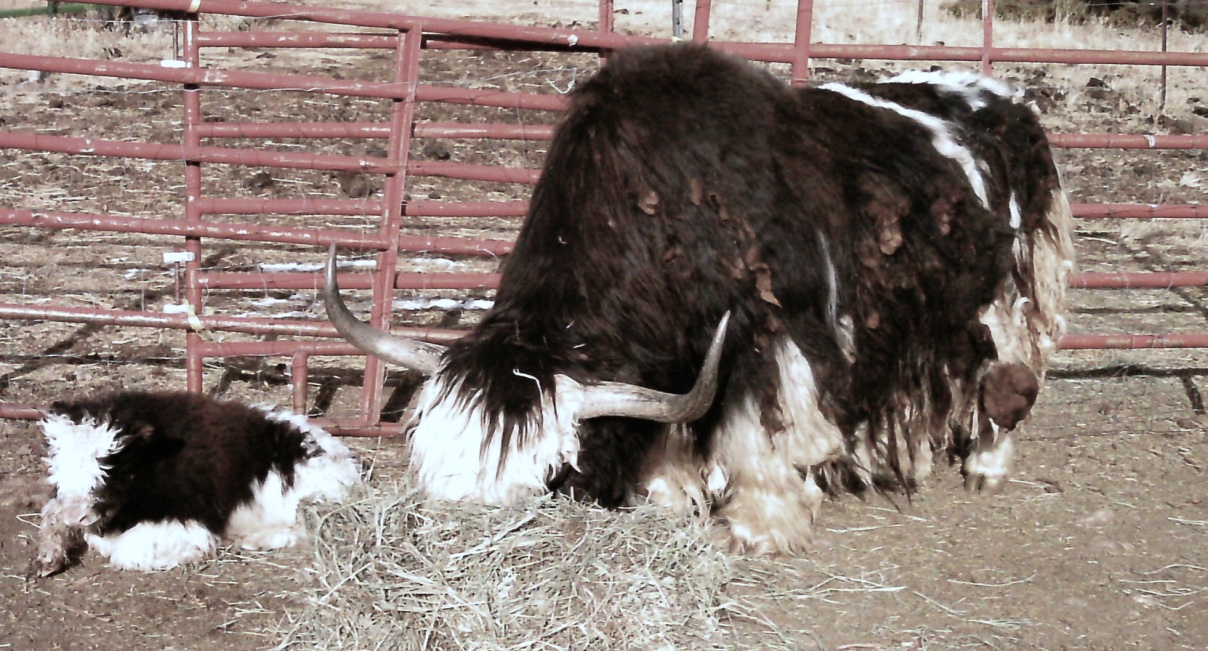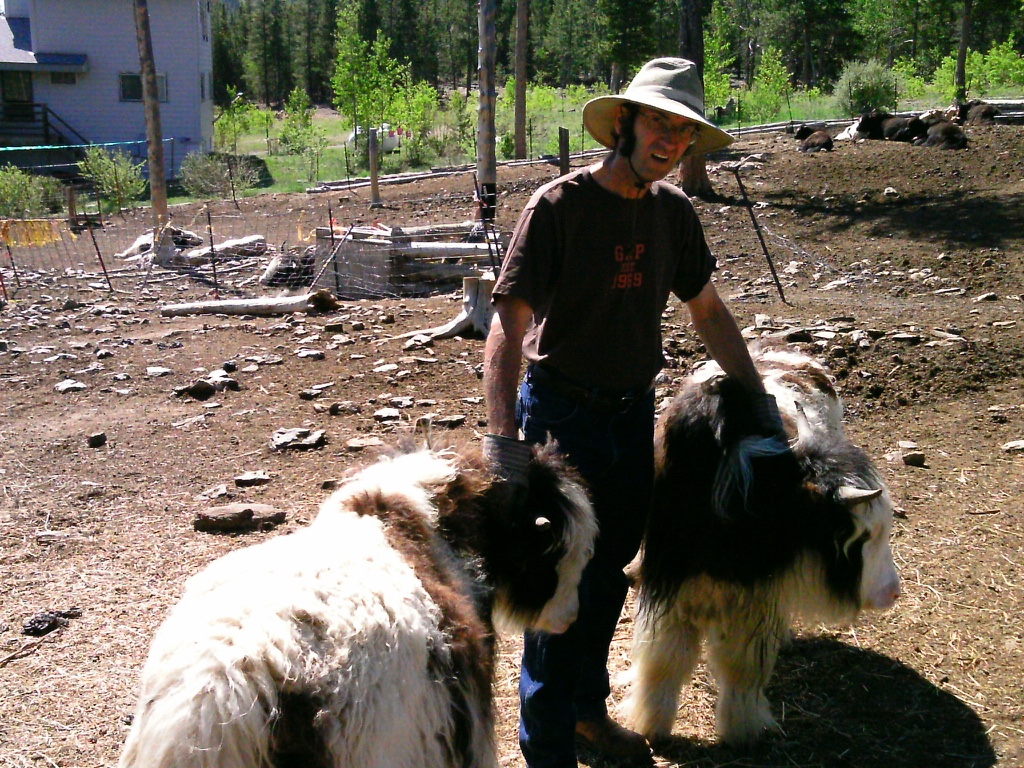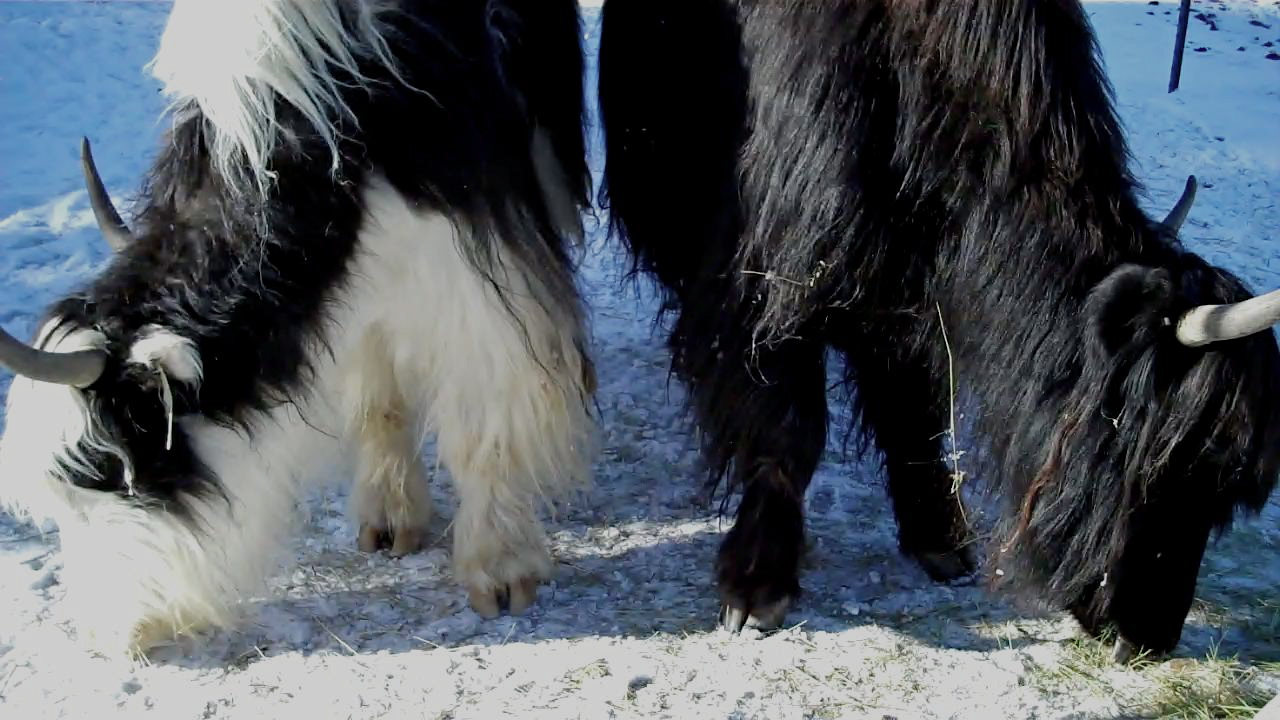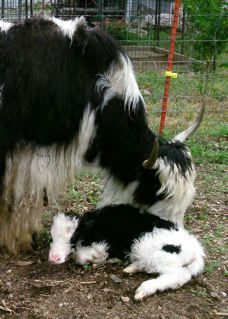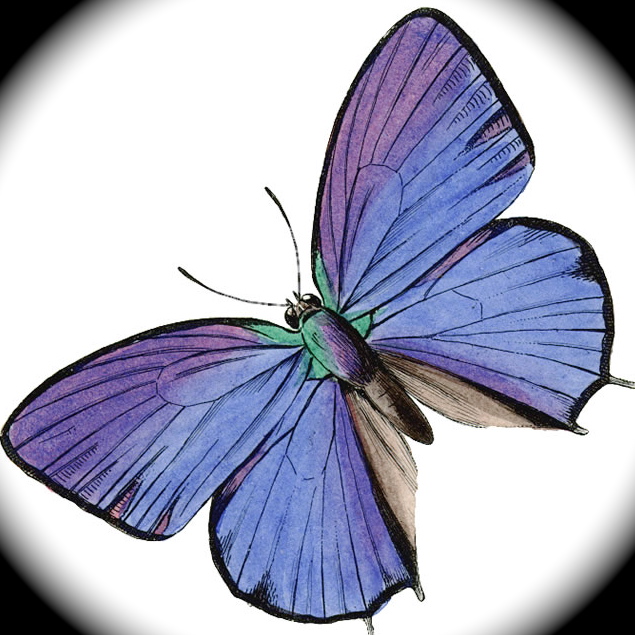We sell yak fiber. Unprocessed, raw yak fiber is currently $5.00 an ounce. We hope to have some processed fiber available by Fall 2025. Since we hand process the yak fiber ourselves, it is processed only during the winter months when our outside work slows down. No chemicals are used on the fiber and it is processed with a manual carding machine and hand carders. Contact us for availability of yak fiber.
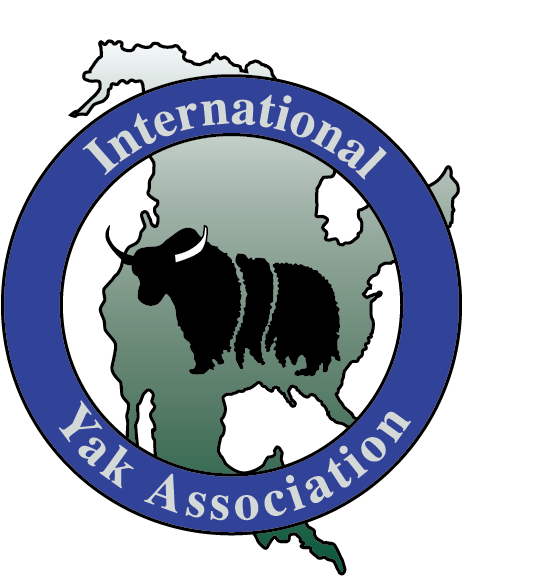
Mystic T Ranch North American Tibetan Yaks
Our Mystic T Ranch began yak ranching in January 2008. Our focus is breeding "Natural" seed-stock and producing yak fiber. We have carefully selected our yaks so they carry forward the best lines of yak available in the United States. We produce "Natural" yaks with the mature cows in the 650 to 750 lb size range and mature bulls in the 1600 to 1700 lb range. We do not breed to increase a yak's overall size or body length or to produce any specific physical traits other than a gentle personality, wooliness and good conformation. Cattle breeding done to specifically produce a larger carcass results in reduced grazing efficiency, increased feed costs, birthing problems and issues with infertility. We do not use Artificial Insemination with our yaks as many of the same problems can be produced through usage of large line bred bulls used for AI.
Our focus is to to produce the best Gentle, High Fiber, Top Quality "Natural"yaks available in the US. We may be a small ranch but our reputation for producing Gentle "easy to handle" Top Quality yaks is well known among yak owners and yak breeders alike. Our determination to produce "Natural" yaks is unique among yak breeders.
Our yak herd is currently made up of Royals and Imperial Trims. Royals are black and white (similar to Holstein markings) with pink noses. Imperial Trims are mostly black with black noses and some white markings on head, feet or tip of tail. Our herd contains the following top Foundation Herd lines in their lineage: the Diamond line, the Prince Allante line, and the Dreadlock line. These top quality lines were developed from the original stock brought into Alberta, Canada from the Berlin zoo and later imported to the United States.
Along with exceptional wooliness, show quality conformation is important for breeding "Natural"seed-stock yaks. Our yaks stand square on all four corners, a conformation not found in lower quality yaks. They have short hooves and stand upright on them. Our yaks have thick wool and long skirts. They have well developed chaps on their front quarters and prominent forelocks. They could never be mistaken for rangy cattle and are never bred just to produce meat for sale.
At the National Western Stock Show in 2012, out of 62 yaks competing, our yearling yak took 2nd place in fiber and a six month-old yak took 4th place in fiber. Our yaks were consistent ribbon winners in halter, fiber and pen. We chose to no longer show due to the unsanitary conditions present at the National Western Stock Show yards. We have a closed herd and did not want to risk introducing any infectious cattle diseases into our herd. Check out the photos of our 2012 National Western Stock Show Reserve Grand Champion Bull and other ribbon winners on our Our Stock Show Winners page.
Our yaks have generations of "Gentle" yaks in their lineage. Our breeding program continues this focus of "Gentle" yaks and we have chosen to remain a small yak ranch so our yaks get the human contact and personal attention they each deserve. We imprint each yak calf at birth with a focus on developing trust early. Each yak has its own unique personality and responds to its personal name reflecting the close relationship that has been developed.
Mystic T Ranch has been a Lifetime member of the International Yak Association since 2008 when we acquired our first Full Bloodline Foundation yaks. The International Yak Association (IYAK) is dissolving in January 2025 and attempting to reconfigure as NAYAK combining US Yaks members with the remaining IYAK members. US Yaks was formed because some breeders wanted to register and sell yaks crossed with cattle which IYAK refused to register as Foundation yaks.
Since the majority of our yak buyers are not interested in breeding yaks to show but just want to own "Gentle", Top Quality yaks for a more reasonable price, we no longer register yaks. Registration was an extra cost that most buyers did not need or want. What they do need is a yak that can be handled and one that is not wild or aggressive.
We are expecting the arrival of our next baby yaks in 2025. Visit our Yaks for Sale page and check back often for updated photos of our yaks for sale.
We also have yak fiber available for sale. Click the link below to contact us about yak fiber availability. We hope to have both processed and unprocessed yak fiber available for sale by Fall of 2025.
General Facts About Yaks
Historically, Domesticated Full Blood Line yaks are the result of the cross between wild yak (Bos grunnians) and domestic cattle breeds (Bos mutus) that has occurred for over 3000 years around the Himilayan mountains in Tibet.
Yaks provide an excellent source of breeding stock, crossbreeding stock, fiber, milk and dairy products, meat, hides, horns, and make excellent pack or show animals.
Yaks originated at high altitude and cooler climates due to their heavy coat and lack of sweat glands. They can handle normal ‘summer’ conditions when plenty of fresh water is available. A natural size yak eats about 1/3 the amount of grass or hay and drinks 1/3 the amount of water of a commercial cow. The larger size yaks that other breeders have been developing will require more feed and water. Yaks have no need for grain. A good mineral block and a salt block is necessary along with free choice fresh water.
Yak fiber is comparable to cashmere or angora. It is the soft, thick wool-like undercoat shed off during spring or early summer. During this time, it can be combed out, collected and processed. The courser outer hair or ‘guard hair’ is often used to weave ropes and belts. The softer undercoat is woven into yarn.
Yak meat has a delicate and delicious beef like flavor. Yak meat is very low in fat as the fat layer is put down on the outside of the yak carcass and is easily trimmed off. The meat is deep red in color, high in protein, and low in calories, saturated fats, cholesterol and triglycerides.
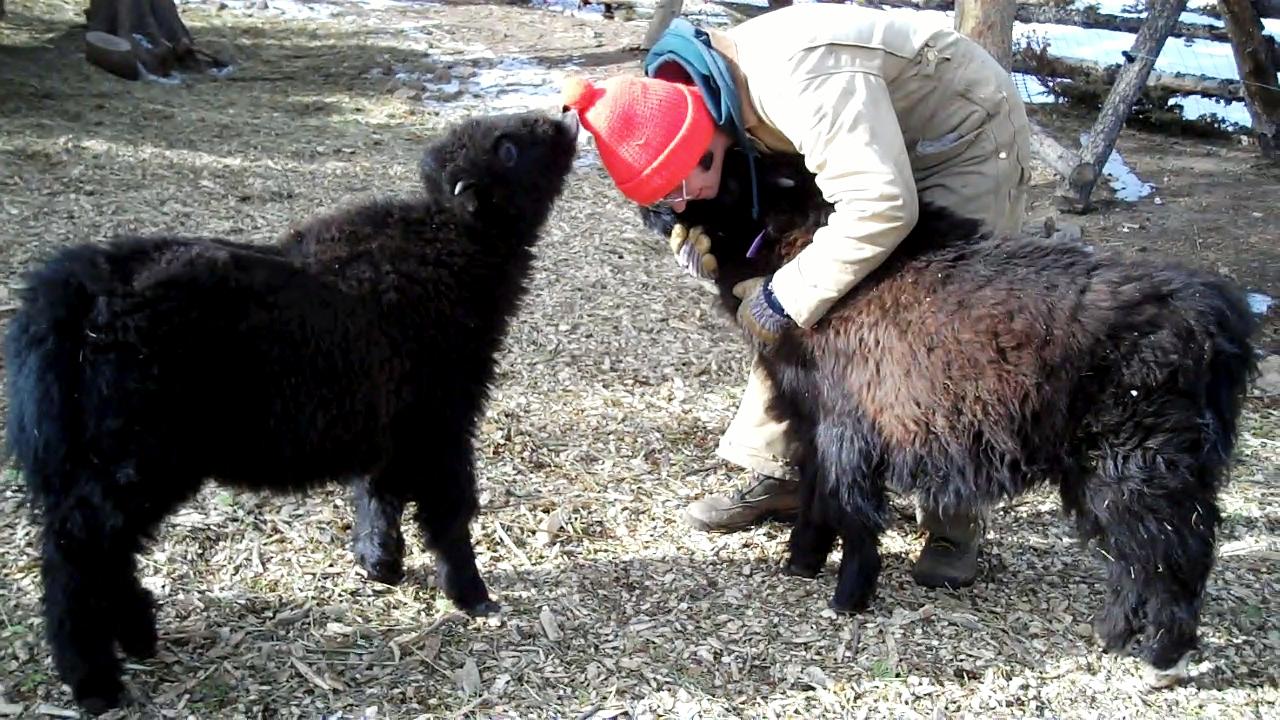
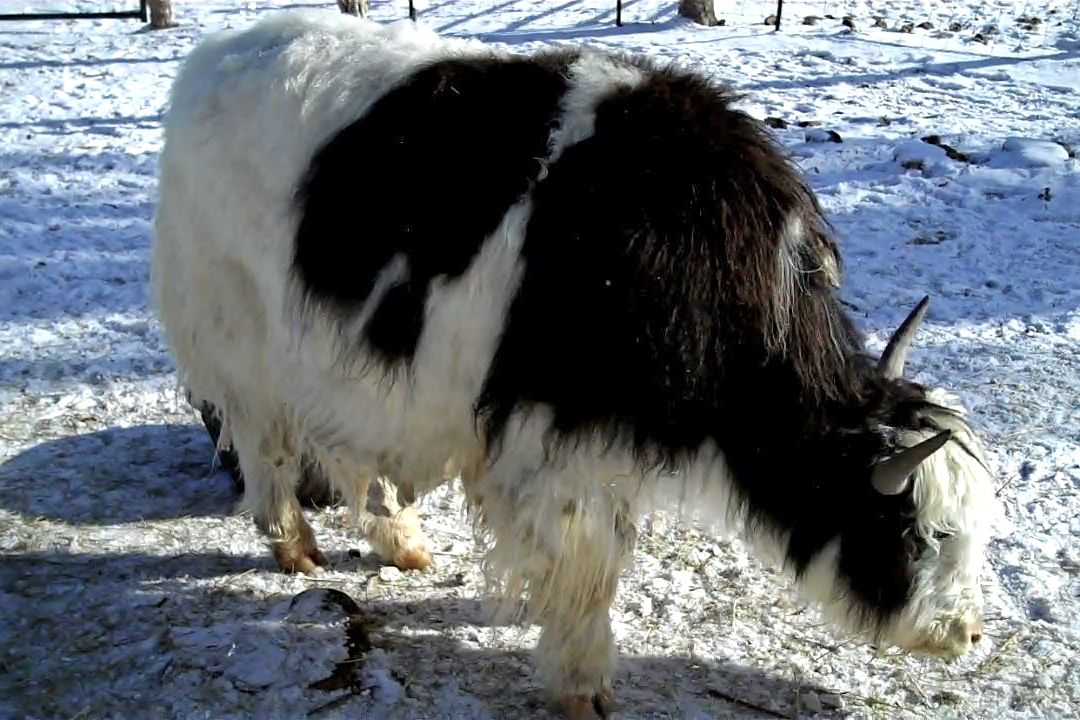
MTR Ramani A044- Born September 26, 2013
MTR Aashi B104 - Born July 12, 2014
We Love Our Yaks!
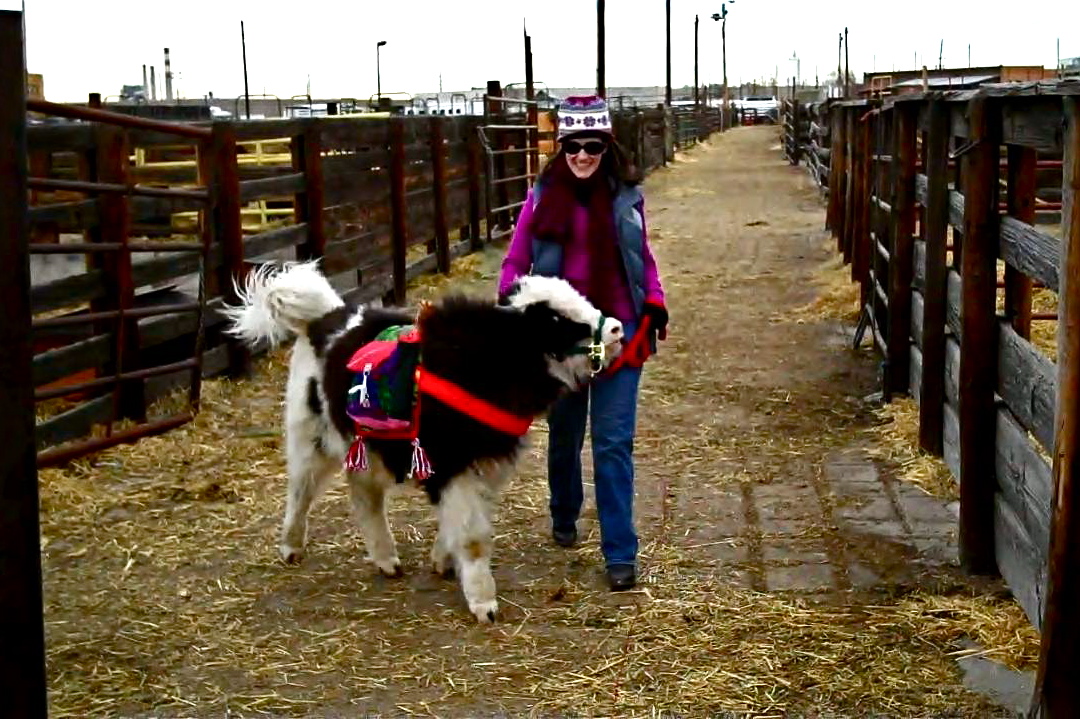
MTR Shabbina 2D232- Born September 29, 2016

MTR Karban 2E116 - Born December 19, 2017
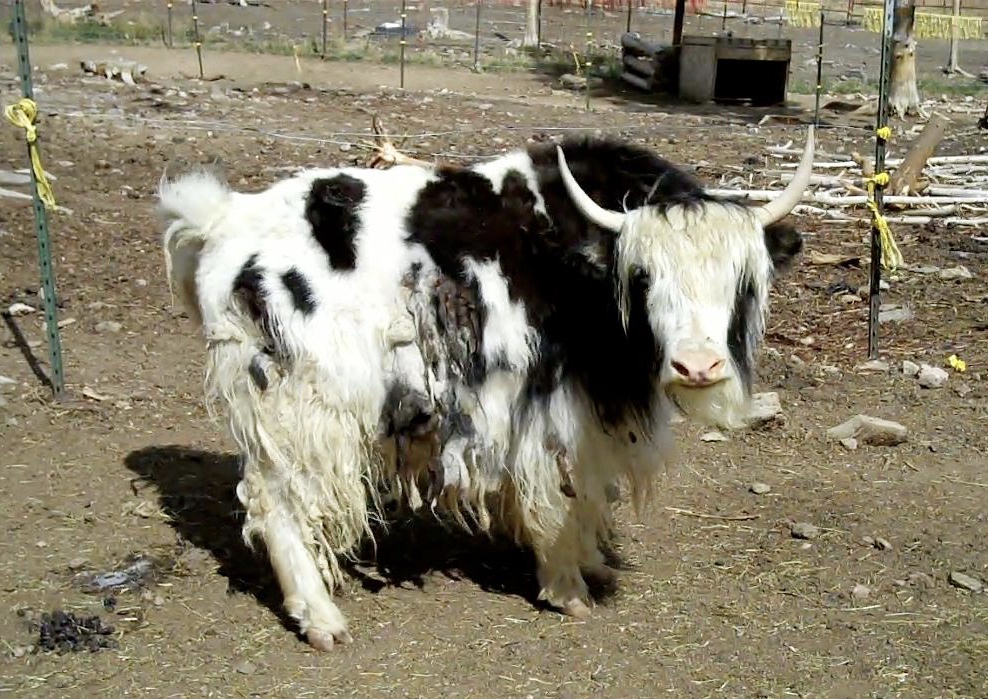

Combing yaks for underdown fiber
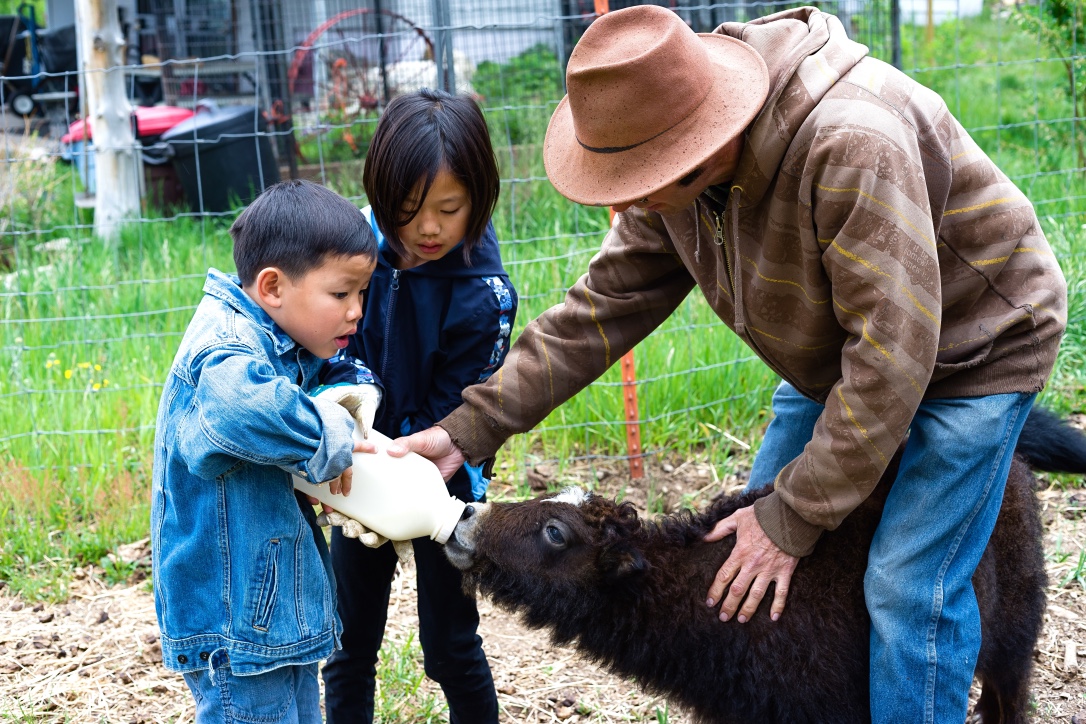
Teaching how to bottle feed a baby yak
